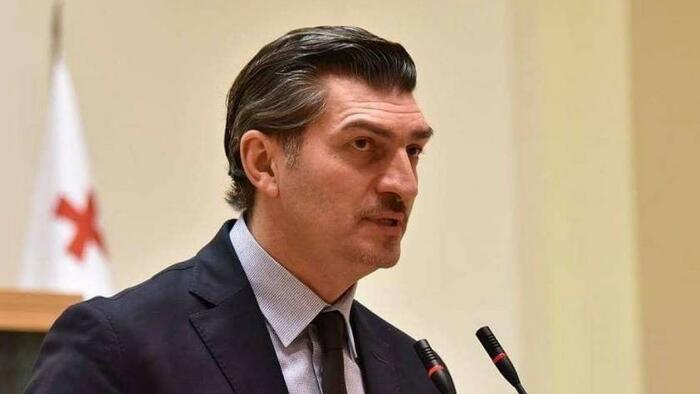Mikheil Kavelashvili, a former professional footballer known for his time with Manchester City, has recently been elected as the new president of Georgia. At 53 years old, Kavelashvili, representing the Georgian Dream party, won the presidency with overwhelming support from the electoral college, receiving votes from 224 out of 225 members. His election followed a contentious political landscape marked by a boycott of parliament from major opposition groups. These groups alleged that the preceding elections in October were marred by substantial rigging, leading to ongoing political unrest and large-scale pro-European Union protests in the capital city of Tbilisi.
The Central Election Commission Chairman, Giorgi Kalandarishvili, confirmed Kavelashvili’s victory, stating it was a significant event for the country. His inauguration, scheduled for December 29, is anticipated to be met with substantial protests, ignited by public dissent toward the Georgian Dream party’s consolidation of power. The ongoing unrest has seen police implementing riot control measures to manage growing crowds in response to the political events unfolding in the country. The atmosphere remains tense, with widespread allegations of undemocratic practices contributing to the division between the ruling party and a frustrated populace.
Mikheil Kavelashvili’s journey to the presidency is marked by his earlier career in professional football. Emerging from the youth ranks of Dinamo Tbilisi in 1989, he transitioned to a role as a striker, playing for various clubs, including Spartak Vladikavkaz and Manchester City, before retiring in 2006. With a notable international career comprising 46 caps and nine goals for the Georgian national team, his football success might seem an unlikely precursor to a political career. However, it wasn’t long after retiring that Kavelashvili entered the political arena, being elected as a member of parliament in 2016 on the Georgian Dream ticket, showcasing his shift from sports to politics.
In 2022, he co-founded the People’s Power political movement, which has accompanied the Georgian Dream party and gained notoriety for its strong anti-Western sentiment. This positioning has attracted scrutiny and criticism, as many view Kavelashvili’s political experience as insufficient for leadership; he has faced mockery regarding his educational background from opposition factions. During his election, demonstrators outside of parliament delivered pointed jabs at him by waving diplomas and kicking footballs, highlighting perceived deficiencies in his qualifications to serve as president of the nation.
Kavelashvili’s political actions have often been controversial. Notably, he was part of the drafting of a law demanding that organizations receiving a significant portion of their funding from foreign sources be registered under the premise of “pursuing the interest of a foreign power,” a move reminiscent of similar laws in Russia aimed at undermining critical organizations. This measure has contributed to the perception of a hardening political climate within Georgia under the Georgian Dream administration, intensifying the fears associated with foreign influence and internal dissent.
The current political climate in Georgia bears resemblance to the tensions seen in Ukraine during its political unrest in 2014, reflecting a broader regional struggle for alignment, either towards the West or in opposition to it. As protests continue, the risk of escalating conflict remains a palpable concern for officials in Tbilisi, particularly worries about increased hostilities involving the US or Russia. The divide within Georgian society between governmental authority and popular dissent raises significant questions about the future trajectory of the country’s politics under Kavelashvili’s leadership, amidst growing calls for democratic reforms and accountability.

